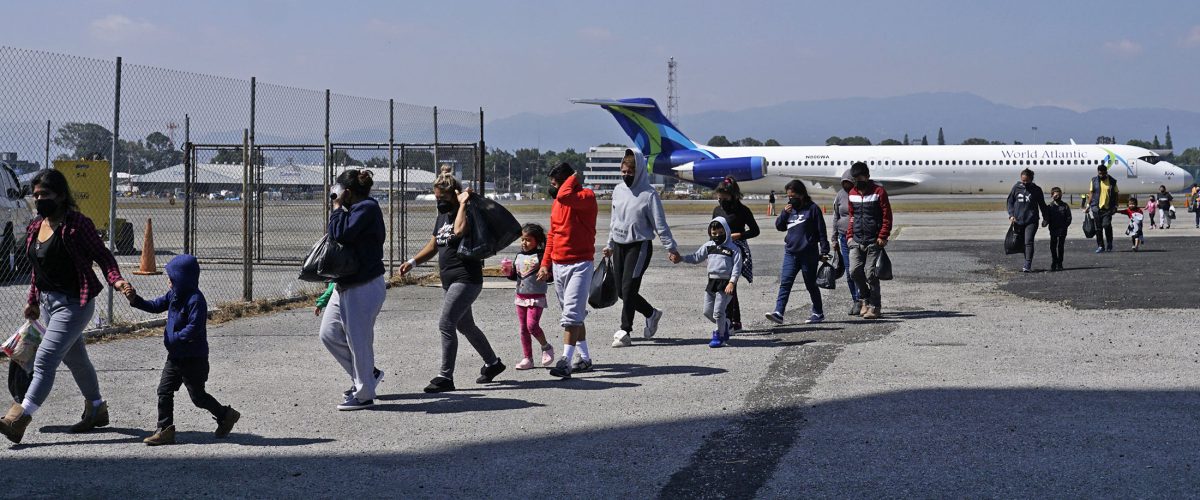Inauguration Day is coming and if President-elect Trump’s actions match his pre-election rhetoric, one of his first actions will be clamping down on immigration and ramping up mass deportations. While his new border czar has declared the administration’s initial focus will be on those immigrants who have criminal records, many immigrants (and those who work with them), are feeling increasingly anxious about what might come.
As an evangelical Christian and an ordained minister within the Congregationalist tradition — the same tradition that gave us Calvin, the Pilgrims and Jonathan Edwards — I preach and teach often about the authority of the Bible and the redemptive work of Christ. But just as often, I emphasize the need for justice and social change, believing both are equally mandated by the Bible and by the example of Christ himself.
This belief draws me to the issue of immigration. I care about the fate of refugees and immigrants because my faith tradition does. The Bible does not leave room for ambiguity. In the book of Deuteronomy, we are instructed: “The Lord defends the rights of orphans and widows. He cares for foreigners and gives them food and clothing. And you should also care for them, because you were foreigners in Egypt.”
Similarly, Jesus’ teaching on the Last Judgment (Matthew 25:31-46) ties our destiny to how we treat the marginalized and suffering. Christian history reminds us the stranger among us is to be welcomed as though we were greeting Christ himself.
“77% of evangelicals favor a path to citizenship for immigrants.”
Despite these clear teachings, it is often assumed that Christians, especially conservative ones, would follow the calls for mass deportations of undocumented immigrants. But nothing could be further from the truth. A recent study by Lifeway Resources found 77% of evangelicals favor a path to citizenship for immigrants. While a portion of them supports amnesty, an even larger group favors a restitution-based approach — where undocumented immigrants with no criminal history could pay a fine for crossing the border unlawfully and then begin a path toward legal residency.
This is not surprising. Evangelicals generally advocate for following the law but also prioritize welcoming the stranger. It’s a balance that aligns with both biblical principles and a desire for compassion.
I am not only a Christian; I am also an American who cares about my country’s well-being. One of the persistent myths about immigrants is that they “steal American jobs” and drain economic resources. In reality, immigrant workers are the backbone of several critical industries: construction, hospitality, and agriculture among them. These sectors would face significant labor shortages without immigrant workers. Studies have shown removing immigrants from the job market does not result in native-born workers filling those positions.
In fact, many immigrants are successful entrepreneurs, contributing greatly to a vibrant, healthy economy. The loss of their efforts would have a significant negative impact.
Additionally, immigrants contribute billions of dollars annually to taxes, Social Security and Medicare, often without benefiting from these systems themselves. Their purchasing power strengthens local economies, benefiting retailers, the housing market and the energy sector. The Department of Health and Human Services estimates refugees and asylees alone have added $124 billion in positive impact to the U.S. economy over a 15-year period.
But what about concerns over security? While there is little doubt that some immigrants have committed crimes in our nation — some heinous ones — studies show refugees and immigrants are less likely to commit crimes than native-born Americans, and regions with higher immigrant populations tend to have lower crime rates.
My plea is that we avoid the extremes that seem to dominate our national conversation. It is entirely possible to advocate for a secure border without demonizing every person seeking safety and refuge in this country.
Every day, I look into the eyes of God’s children who have escaped poverty, persecution, and war to find safety here — just as many of our families once did.
May we welcome them with dignity, kindness and respect.
Garry J. Crites serves as church and community engagement manager at World Relief Durham.
Related articles:
At the border, Catholic Church will still support immigrants, bishop says
79% of Republicans favor rounding up illegal immigrants into camps before deportation
How the party of business came to embrace anti-immigrant policies bad for business | Analysis by Mark Wingfield



